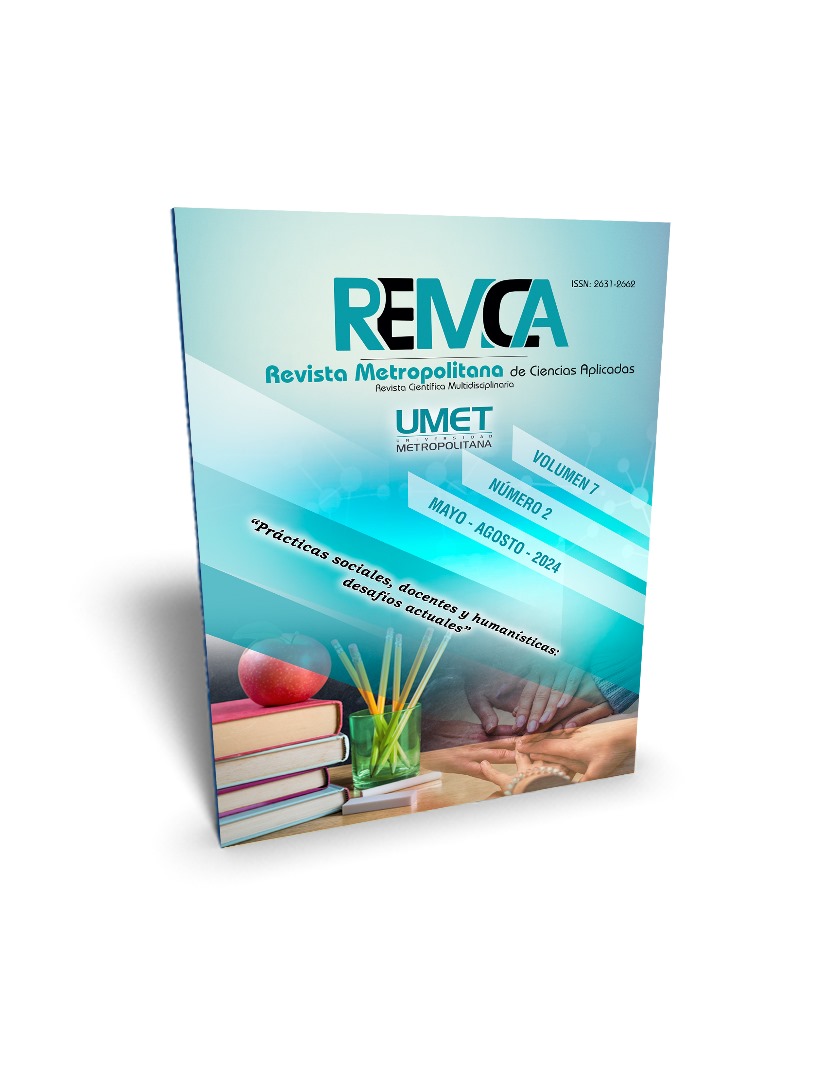Risk assessment in performance auditing: a review of approaches and methods
DOI:
https://doi.org/10.62452/re6zfj06Keywords:
Performance auditing, accounting, control, technology, riskAbstract
Performance auditing has evolved over time from a focus on error and fraud detection to a more comprehensive and strategic approach. The main objective of this study was to analyze and compare traditional and modern approaches to performance auditing. A non-experimental and qualitative methodological approach was used, based on a documentary review of indexed academic sources. The results revealed a significant transition in auditing practices, with the modern approach oriented towards continuous improvement and risk anticipation. The importance of adopting advanced technologies, such as artificial intelligence, to improve audit efficiency and effectiveness was highlighted. In conclusion, performance auditing plays a conclusive role in process improvement and informed decision making, contributing to the achievement of organizational objectives and the maintenance of high standards of performance and transparency.
Downloads
References
Appelbaum, D., Kogan, A., & Vasarhelyi, M. (2018). Analytical procedures in external auditing: A comprehensive literature survey and framework for external audit analytics. Journal of Accounting Literature, 40, 83-101. https://www.sciencedirect.com/science/article/abs/pii/S0737460716300611
Arias, I. (2018). Auditoría un enfoque de gestión. Revista Observatorio de la Economía Latinoamericana. https://www.eumed.net/rev/oel/2018/04/auditoria-gestion.html
Erazo, J., & Muñoz, S. (2023). Auditoría del futuro, la prospectiva y la inteligencia artificial para anticipar riesgos en las organizaciones. Revista Digital Novasinergia, 6(1), 105-119. https://novasinergia.unach.edu.ec/index.php/novasinergia/article/view/384
Franklin, E. (2007). Auditoría administrativa. Gestión estratégica del cambio. Pearson Educación.
García, J., Peña, M., & Rodríguez, A. (2007). Métodos cuantitativos versus métodos cualitativos en la Economía de los Negocios. ¿Es una metodología irreconciliable? EconoQuantum, 3(2), 117-150. https://www.redalyc.org/pdf/1250/125015208005.pdf
González, E., Hernández, G., Fernández, M., & Padrón, S. (2015). Auditoría de gestión de procesos sustantivos universitarios. Ingeniería Industrial, 36(2), 152-163. https://www.redalyc.org/pdf/3604/360441056005.pdf
Grageola, L., Martínez, G., Guzmán, C., & Morales, T. (2020). Énfasis del control interno y su ámbito en las deducciones fiscales. Revista Nacional de Administración, 11(2), 30-37. https://www.scielo.sa.cr/scielo.php?script=sci_arttext&pid=S1659-49322020000200005
Hérnandez, R., & Mendoza, C. (2018). Metodología de investigación. McGrawHill.
Llumiguano, M., Gavilánez, C., & Chávez, G. (2021). Importancia de la auditoría de gestión como herramienta de mejora continua en las empresas. Dilemas contemporáneos: educación, política y valores, 8(3). https://www.scielo.org.mx/scielo.php?script=sci_arttext&pid=S2007-78902021000500042
López Jara, A. A., Cañizares Roig, M., & Mayorga Díaz, M. P. (2018). La auditoría interna como herramienta de gestión para el control en los gobiernos autónomos descentralizados de la provincia de Morona Santiago. Cuadernos De Contabilidad, 19(47), 80–93. https://doi.org/10.11144/Javeriana.cc19-47.aihg
Marrero Marrero, M., Naranjo Garcìa, M. M., & Franco Martínez, E. L. (2015). La Auditoría de Gestión una alternativa para los auditores internos en las empresas cubanas. Uniandes Episteme, 2(2), 096–104. Recuperado a partir de https://revista.uniandes.edu.ec/ojs/index.php/EPISTEME/article/view/91
Martínez, R., & Blanco, M. (2017). Gestión de riesgos: reflexiones desde un enfoque de gestión empresarial emergente. Revista Venezolana de Gerencia, 22(80). https://www.redalyc.org/journal/290/29055967009/29055967009.pdf
Medina, A., Nogueira, D., Hernández, A., & Comas, R. (2019). Procedimiento para la gestión por procesos: métodos y herramientas de apoyo. Ingeniare. Revista chilena de ingeniería, 27(2). https://www.scielo.cl/scielo.php?script=sci_arttext&pid=S0718-33052019000200328
Miñano, J. (2011). Auditoria de la gestión empresarial. Revista de La Facultad de Ciencias Sociales, 19(36), 33-37. https://dialnet.unirioja.es/servlet/articulo?codigo=9417663&orden=0&info=link
Montilla, O. (2004). Modelo para evaluación de gestión de empresas insdutriales del subsector de cosméticos. Estudios Gerenciales, 20(92). https://www.redalyc.org/pdf/212/21209202.pdf
Montilla, O., & Herrera, L. (2006). El deber ser de la auditoría. Estudios Gerenciales, (98), 83-110. https://www.icesi.edu.co/revistas/index.php/estudios_gerenciales/article/view/185
Morales, F. (2019). Tecnología de la información como herramienta de la auditoría. Contaduría Pública. https://contaduriapublica.org.mx/2019/10/01/tecnologia-de-la-informacion-como-herramienta-de-la-auditoria/
Ramírez, J. (2022). Estrategias de la planeación en la auditoria. Torreón Universitario, 11(30). https://doi.org/10.5377/rtu.v11i30.13381
Restrepo, M. (2022). Caracterización y evaluación de la función preventiva del control interno en Colombia. Vniversitas, 71. https://revistas.javeriana.edu.co/index.php/vnijuri/article/view/35779
Rojas, E. (2018). Las organizaciones, el control y la auditoría interna. Revista Gestión y Desarrollo Libre, 3(5), 125-145. https://revistas.unilibre.edu.co/index.php/gestion_libre/article/view/8191
Sotelo, J. (2018). La planeación de la auditoría en un sistema de gestión de calidad tomando como base la norma ISO 19011:2011. Revista Iberoamericana para la Investigación y el Desarrollo, 18(16). https://www.scielo.org.mx/scielo.php?script=sci_arttext&pid=S2007-74672018000100097
Zambrano Zambrano, M. I., Véliz Briones, V. F., Escobar García, M. C., & Armada Trabas, E. (2018). Auditoría de gestión: fundamentos teóricos y metodológicos. Mikarimin. Revista Científica Multidisciplinaria, 4(4), 13–24. Recuperado a partir de https://revista.uniandes.edu.ec/ojs/index.php/mikarimin/article/view/1186
Zambrano, G., Álvarez, D., & Yoza, N. (2021). La importancia de la auditoría de gestión y los procesos administrativos y técnicos, realidades y perspectivas. Revista Científica Multidisciplinaria, 5(3), 127-140. https://revistas.unesum.edu.ec/index.php/unesumciencias/article/view/568
Zhang, C. (2019). Intelligent process automation in audit. Journal of Emerging Technologies in Accounting, 16(2), 69-88. https://publications.aaahq.org/jeta/article-abstract/16/2/69/9284/Intelligent-Process-Automation-in-Audit?redirectedFrom=fulltext
Downloads
Published
Issue
Section
License
Copyright (c) 2024 Jimmy Araldo Loaiza-Tapia, Azucena de las Mercedes Torres-Negrete (Autor/a)

This work is licensed under a Creative Commons Attribution-NonCommercial-ShareAlike 4.0 International License.
Authors who publish in Revista Metropolitana de Ciencias Aplicadas (REMCA), agree to the following terms:
1. Copyright
Authors retain unrestricted copyright to their work. Authors grant the journal the right of first publication. To this end, they assign the journal non-exclusive exploitation rights (reproduction, distribution, public communication, and transformation). Authors may enter into additional agreements for the non-exclusive distribution of the version of the work published in the journal, provided that acknowledgment of its initial publication in this journal is given.
© The authors.
2. License
The articles are published in the journal under the Creative Commons Attribution-NonCommercial-ShareAlike 4.0 International License (CC BY-NC-SA 4.0). The terms can be found at: https://creativecommons.org/licenses/by-nc-sa/4.0/deed.en
This license allows:
- Sharing: Copying and redistributing the material in any medium or format.
- Adapting: Remixing, transforming, and building upon the material.
Under the following terms:
- Attribution: You must give appropriate credit, provide a link to the license, and indicate if any changes were made. You may do this in any reasonable manner, but not in any way that suggests the licensor endorses or sponsors your use.
- NonCommercial: You may not use the material for commercial purposes.
- ShareAlike: If you remix, transform, or build upon the material, you must distribute your creation under the same license as the original work.
There are no additional restrictions. You may not apply legal terms or technological measures that legally restrict others from doing anything the license permits.




